Swallows
My primary impression of swallows is obtained from their acrobatic flying as they scour the air for insects—sort of a bat of the daytime.
Various species of swallows are seen around the Lake—Tree, Violet-green, Bank, Barn, and others—but, I most often see the Tree Swallow and the Violet-green Swallow. Similar in shape and behavior, both are darkly coloured above and a white below. the Tree Swallow has a steely blue back (with touches of green), while the Violet-green Swallow has a green back (and violet wings). If the head is clearly visible, an easy way to tell them apart is that Tree Swallow’s blue cap extends below its eyes, while white extends above the eye on the Violet-green Swallow.
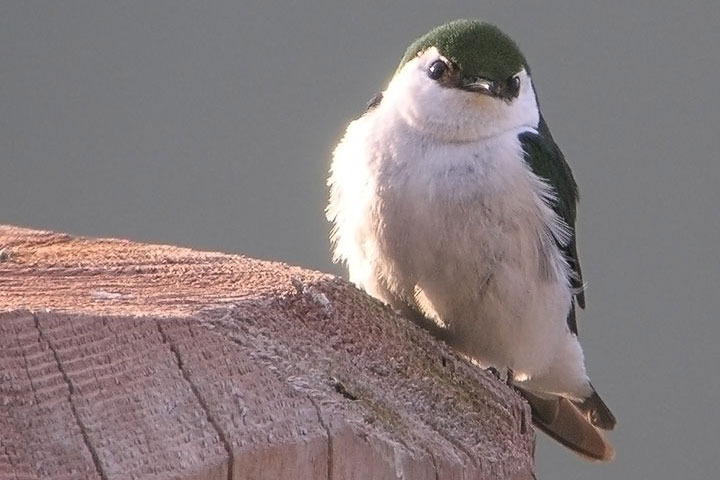 White clearly extends above the eye on the Violet-green Swallow.
White clearly extends above the eye on the Violet-green Swallow.
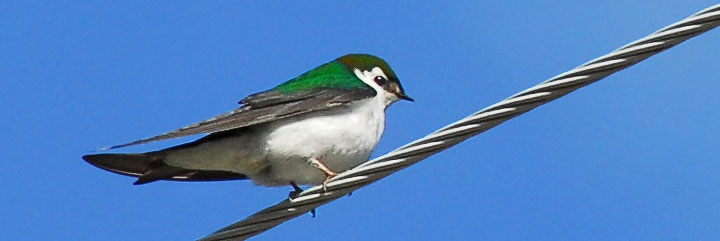 The green back of the Violet-green Swallow is clearly visible in this view.
The green back of the Violet-green Swallow is clearly visible in this view.
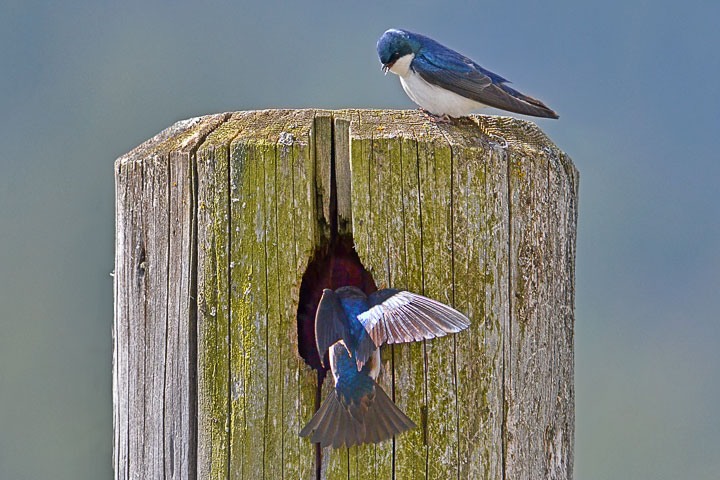 The male Tree Swallow watches as the female lands at the nest.
The male Tree Swallow watches as the female lands at the nest.
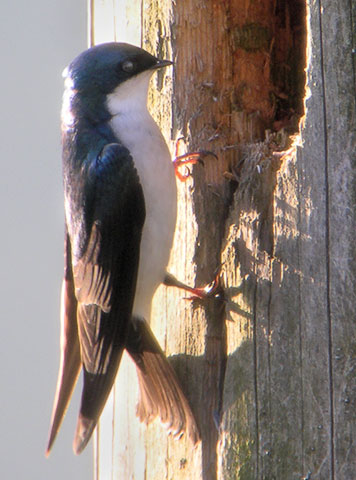 A Tree Swallow examines a potential nest site. Note, its blue back cap which extends down below its eyes. This swallow does not have the characteristic swallowtail; rather its tail feathers are stiff to allow it to perch on a vertical surface.
A Tree Swallow examines a potential nest site. Note, its blue back cap which extends down below its eyes. This swallow does not have the characteristic swallowtail; rather its tail feathers are stiff to allow it to perch on a vertical surface.
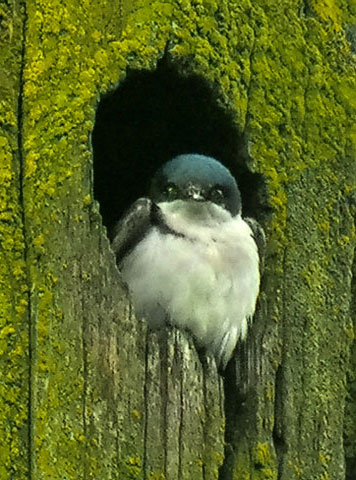 The Tree Swallow soon finds the nest.
The Tree Swallow soon finds the nest.
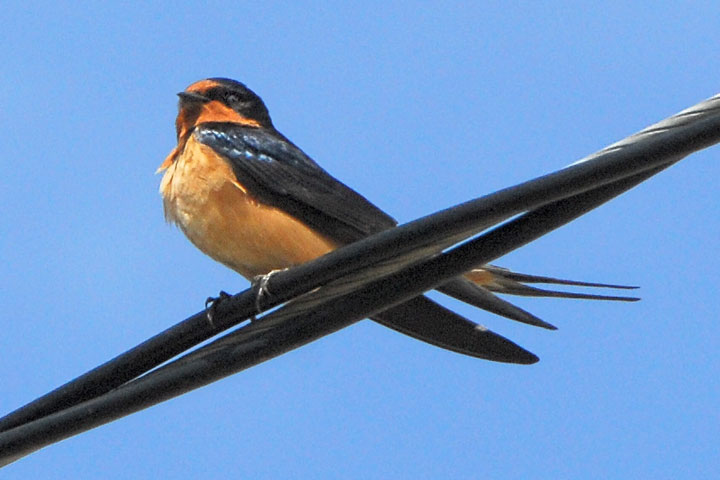 The Barn Swallow is the only swallow seen locally to display the characteristic swallowtail: the deeply forked tail named for this family of birds. In this picture, the tail is the upper (double) structure, while the wings are the lower ones.
The Barn Swallow is the only swallow seen locally to display the characteristic swallowtail: the deeply forked tail named for this family of birds. In this picture, the tail is the upper (double) structure, while the wings are the lower ones.
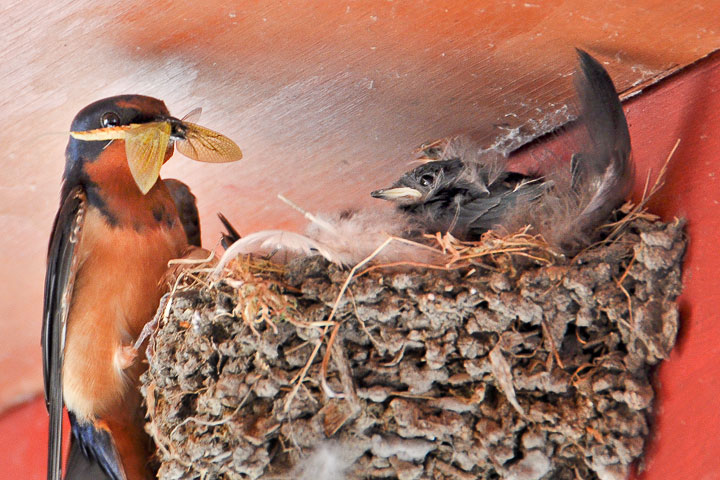 A Barn Swallow offers a mayfly to its chick.
A Barn Swallow offers a mayfly to its chick.
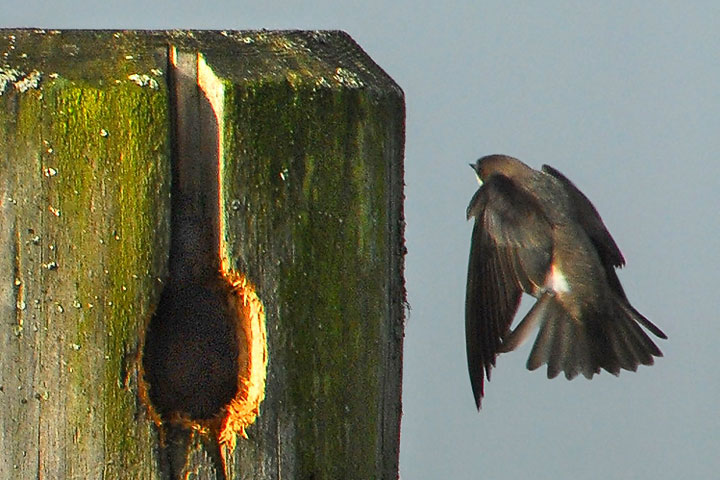 A Tree Swallow lowers its wings and spreads its tail as it slows to make a landing on an interesting opening.
A Tree Swallow lowers its wings and spreads its tail as it slows to make a landing on an interesting opening.
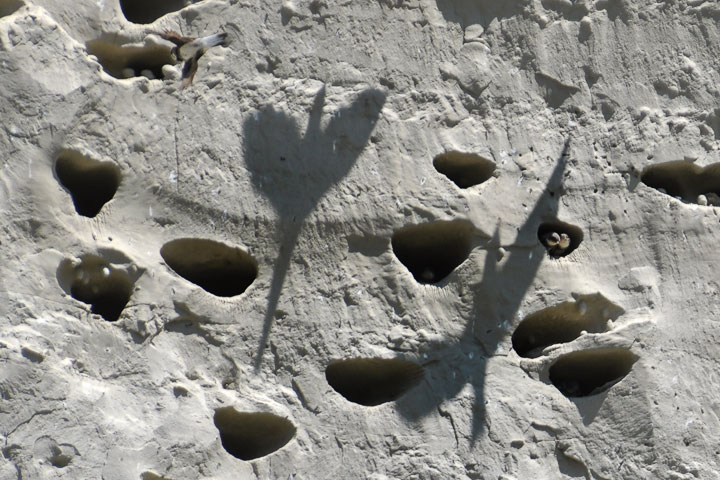 Shadows of flying Bank Swallows are cast on a bank of nests, while some chicks peer out.
Shadows of flying Bank Swallows are cast on a bank of nests, while some chicks peer out.
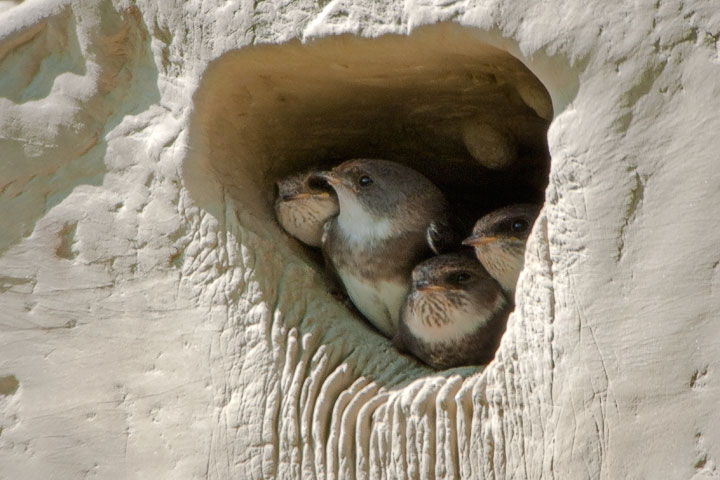 Bank Swallow peer from the nest and wait for a parent to bring food.
Bank Swallow peer from the nest and wait for a parent to bring food.
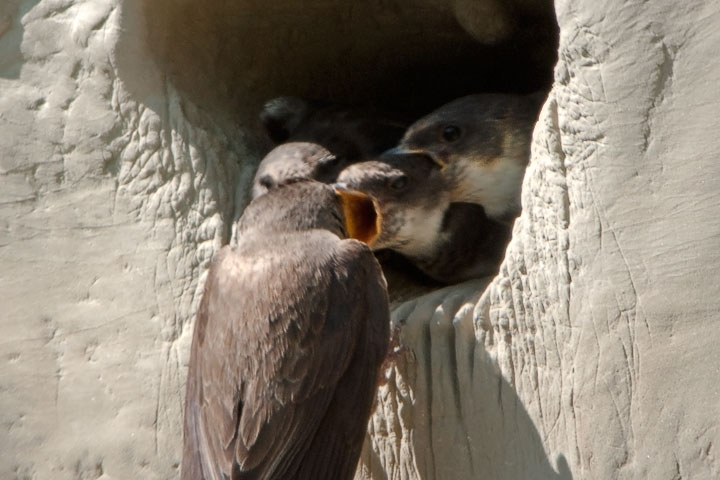 A Bank Swallow brings food to anxious chicks.
A Bank Swallow brings food to anxious chicks.
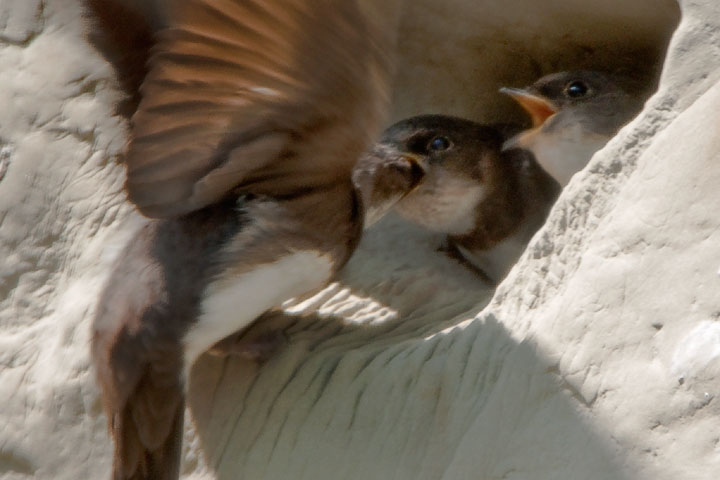 A Bank Swallow passes food to its chicks.
A Bank Swallow passes food to its chicks.
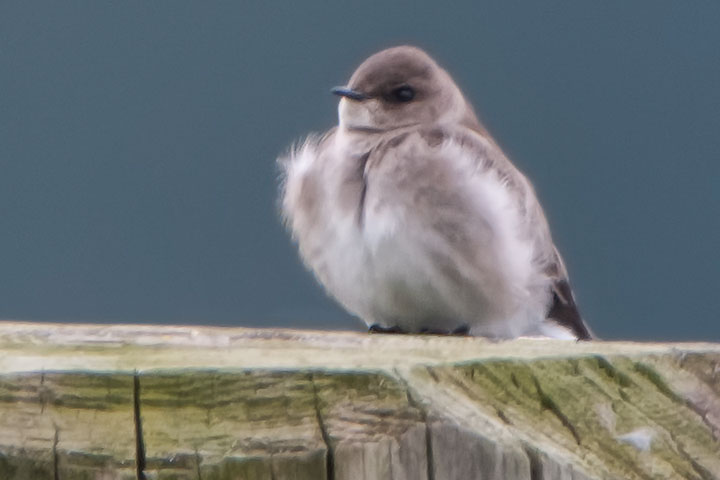 A Northern Rough–winged Swallow
A Northern Rough–winged Swallow
Information from Wikipedia: Hirundidae (swallows), Tree Swallow, Violet-green Swallow, Barn Swallow, Bank Swallow.
![]()